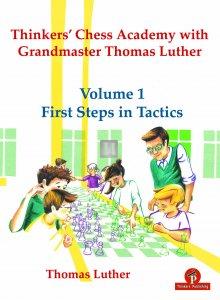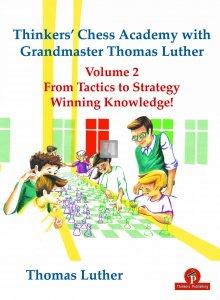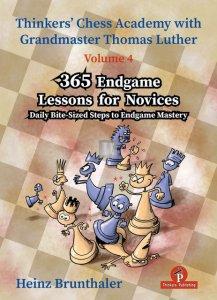Thinkers' Chess Academy with GM Luther - vol. 7

You like chess and want to become a better player?
The way to reach this goal is usually to start learning. And there’s a lot to learn; an important part of chess knowledge is used for the endgame. Sounds like hundreds of hours of training are waiting for you!? Don’t worry, we’ll show you a more practicable way.
You may not have the time or patience to study chess systematically. That will probably prevent you from becoming a master. But to be a better player or to have more understanding of chess it’s not necessary to work so hard. A little lesson or task every day should improve your chess without much effort over the time of one year.
Description
You like chess and want to become a better player?
The way to reach this goal is usually to start learning. And there’s a lot to learn; an important part of chess knowledge is used for the endgame. Sounds like hundreds of hours of training are waiting for you!? Don’t worry, we’ll show you a more practicable way.
You may not have the time or patience to study chess systematically. That will probably prevent you from becoming a master. But to be a better player or to have more understanding of chess it’s not necessary to work so hard. A little lesson or task every day should improve your chess without much effort over the time of one year.
In this book we have collected typical positions and situations frequently seen on the board. If you know these you can avoid a lot of common mistakes. Or even better, you can exploit your opponent’s mistake.
Look for a time of the day you can nearly always use to look at one of our examples. It must not be long, 5–10 minutes should do. Important is, to work a little bit on your chess at nearly every day. If you do so, your brain will adapt to chess, making it easier for you to find the right plan or move. Our brain can adapt for every task required regularly; be it multiplication of finding chess moves.
Information
- Code 8606
- Anno 2024
- Pagine 296
- Isbn 9789083488202
 English
English
 Italiano
Italiano





